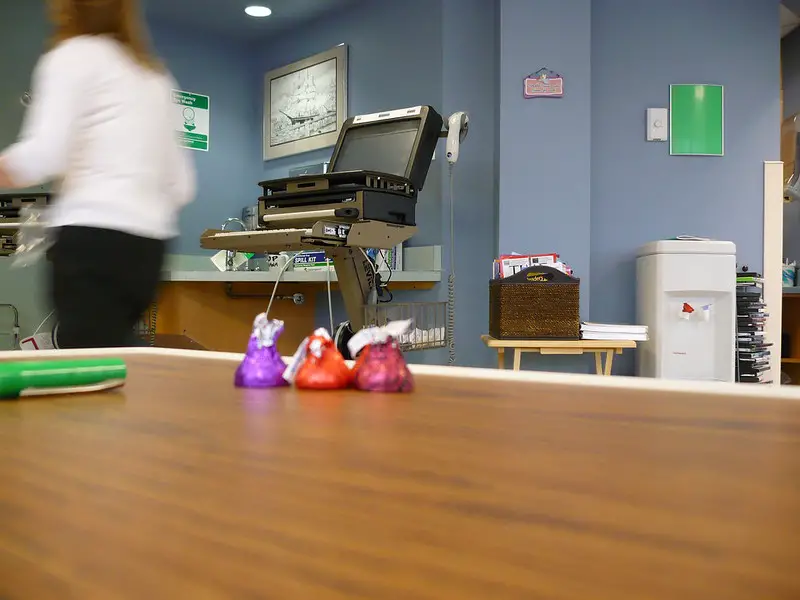Have you got any girlfriend or boyfriend? If you don’t, then there is a piece of extraordinary advice regarding luring possible dating matches at a club: ask a buddy of yours who resembles you very much but who is also somewhat less charming. It’ll help you substantially get closer to success.
What is the reason for this?
Our brains are essentially connected to find similarities and differences. Furthermore, we are inclined to make comparisons in the most slothful way: we make comparisons on the basis of the most accessible people around us.
With the accompaniment of a friend no as attractive as you’re but similar to you at a club, you’re providing your possible dating matches with a simple comparison. Rather than trying to make a comparison of many people whose attractiveness changes from one person to another, they are able to understand you’re more attractive than your friend is. Now that you’ve succeeded in this simple contest and there is no need to make different comparisons for them as it has become very troublesome, they will most likely consider you as the sweetest person at the bar. Great! But don’t explain to your friend the reason behind bringing them along.
From the same aspect, there is also an inclination to make comparisons between how much products cost, and numerous marketers cash in on this by putting high-priced “bait products” on sale together with other things so that other products look more affordable when compared. There are canny restaurants, for instance, that will on purpose make the most high-priced food or drink even more exorbitant on the menu so that consumers think the second most high-priced food or drink is comparatively less costly and end up ordering that food or drink.
Comparisons are helpful in our decisions, however, there is a potential of damage to us, as well. When you always compare how much you make a month, your clothes, or automobile to those of others’, you will feel envy and never be satisfied with your possessions. Following the sale of his Porsche Boxster, James Hong, who co-established hotornot.com, made a remark:
“A Boxster life is not what I desire. Do you purchase a Boxster? Then you’ll want to have a 911. Guess what, after owning a 911, what will people with a 911 want? They’ll want to own a Ferrari.”

Chapter 1 – If there is something we can acquire for free, we stop thinking rationally.
There are not many things that can make people act as illogically as except for the word “free.” People, for instance, merrily carry home gratuitous key chains that are of no use from conferences or purchase two unnecessary commodities, the sole reason for which is the third commodity being gratuitous.
Free is beyond being only a price; it is an influential, virtually overwhelming emotional trigger.
Think about research on chocolates: there was a decision in front of the participants. They could either choose delicious Lindt truffles for 15 cents with each piece or substantially less-delicious Hershey’s Kisses for one cent with each piece. Most people (around seven-tenth of them) decided to eat the delicious Lindt truffles.
However, can you guess what happened after the prices were adjusted to 14 cents apiece and free for each Hershey’s Kiss? The price range remand the same(14 cents), however, one product was endowed with the quality of being “free.”
As a result, almost seven-tenth of people decided to eat Hershey’s Kisses, despite the fact that there was still a chance to eat the more delicious truffles at a rather handsome price. This how much the word ”free” is powerful.

What is the reason for this illogical situation? Simply, every time we buy something, there are risks coming along with that something: unless we cannot get our money’s worth, that’s lost money on our part. People dislike it very much when people lose something. Thus, should something don’t have any possible disadvantage (meaning it is free), we think of it as considerably worthier than it actually is, which is called the zero price effect.
The significance of “free” is very influential and firms usually cash in on that. Amazon, for instance, is successful in tempting people to buy “simply one extra book” by granting free shipping for purchases over a specific limit.
Policymakers should recognize, too, and take maximum advantage of the word ”free” to institute reforms. Should the government is intended to urge people to get their cholesterol levels controlled on a regular basis, it is possible to attain this objective, not through a decrease in the price of it but instead through providing this service completely free!
Chapter 2 – The numbers on the first price influence the amount of money we’ll want to pay later.
What is the maximum price that would make you get a good bottle of wine? And as for a box of Swiss chocolates, how much would you pay at most?
Are there any numbers in your mind?
Had I asked you to write the two numbers in your social security number’s last digits before responding to those questions, in your opinion, would you change your estimates?
Astonishingly, the response is likely positive.
How we determine the amount we want to pay for products is considerably more illogical than many are aware of. A study has shown that, rather than giving a logical thought about supply and demand, we actually are inclined to lean on a phenomenon known as arbitrary coherence: we want to see prices in accordance with each other; hence, we base our thoughts on the first price mentioned to us, however arbitrarily given, and see it as a mainstay when we decide on a fair price in the future.

When a novel commodity comes out, such as an LED television, for example, we are incognizant of the price it’s worth; thus, we search for a mainstay. If the price that is first quoted to us is $1200, then Our expectation is that future prices will be consistent with that amount. Thus, if we see a LED television whose price is $1000, it’ll most likely seem like a fairly reasonable price whereas those whose price is $1400 will seem like a daylight robbery.
This mainstay effect is also observed if we want people to write down the two figures in their social security number’s last digits before offering more money on products in an auction. Should the figures are a huge number, like 89 for example, that person will probably give more money for the products and vice versa if the figures are small.
Apparently, we’ll be willing to have any figures that have crossed our minds recently as our mainstay upon encountering a novel product.
Chapter 3 – We give too much value to our possessions.
At Duke University, it is, to put it politely, a nightmare to buy tickets for a basketball match. Students pitch their tents and wait for days outside the stadium so that they can get the chance to join in a lottery for tickets.
Until the lottery, students are a rather uniform group. None of them is more advantageous than the other in getting a ticket and all have made the same effort for this chance; thus, we can assume the value of the tickets is almost the same for everyone. However, once the winners of the tickets are declared, two different groups of students arise – students with tickets and students without tickets.
The results of a poll demonstrated that this entirely arbitrary distribution of students into these groups considerably changes the worth of the tickets: students with tickets did not put them on sale for the amount below $2,400, whereas those without tickets weren’t willing to pay for an amount above $170. What is the reason for this abrupt and extreme contrast?
First, if we possess an item, it becomes like a lover to us. Whatever we’ve done or could do using it (like feeling the atmosphere at a basketball match), it makes us think of it affectionately; thus, they become a lot more valuable for us.
Second, people concentrate a lot more on their loss: The seller becomes devoid of the opportunities the ticket provides, whereas the buyer becomes devoid of opportunities the money can provide for them. They both think that the thing they are giving up is much worthier than the thing they are obtaining.

Lastly, we are in the expectation that what is important for us is also important for other people. Someone who puts his house on sale thinks he should sell it for a more expensive price due to his “original” wallpapering decisions, whereas the buyer believes the seller should reduce the price because of them.
Surprisingly, this same effect is also feasible for views. Should there is a lot of time and labor invested supporting a view, you turn into headstrong since you firmly believe that the view belongs to you, and you are unwilling to give it up.
Chapter 4 – What we expect affects our experiences.
There was a time when Pepsi and Coke both asserted that customers found their cola more delicious than the other.
However, could they be both saying the truth? Was there a liar among them?
It was later found out that people found the Pepsi cola more delicious than the Coke cola in a blind test. However, after carrying out a test in which people could see the names of the companies, they favored Coke over Pepsi.
How come is it possible for the brand – a completely mental model – to affect the taste of their product?
It is possible because what we expect and what we’ve experienced – cola companies, for instance – drastically impacts our opinions regarding things. If we are cognizant that there are praising articles for a film, we will be more inclined to feel joy watching it more than otherwise.
Amazingly, the effectiveness of a medical drug is affected by what we expect of it as well. The placebo effect is the most obvious example of it: if a patient thinks a pill is useful, then he will feel healthier after swallowing the pill, contrary to a patient who doesn’t hold any belief as to whether it’ll be useful or not.

What is more amazing, as the price of the medicine goes up, its effectiveness goes up as well. People who got their pain medication according to the number quoted to them, at $2.50 for each pill felt their pain reduced more frequently than those to whom the price was quoted only 10 cents for each pill.
Likewise, people who spent more money on an energy drink were more successful in the following puzzle task than people who didn’t spend as much money. The “vitalizing impact” was the result of the product’s price.
However, what we expect can influence us in ways obscure to us: should specific stereotypes permeate our mind, we begin to imitate the conduct we would anticipate seeing from the stereotype. Think about that when people needed to finish a word assignment that includes words usually linked to the elderly – such as “Florida,” “ancient,” and “bingo” – they are really inclined to walk in a slower pace following the experiment, which is the exact same thing the elderly would do.
Chapter 5 – How people reply to you when you ask something from them hinges on if they are part of any social or market norms or not.
What is the reason that your mother would be hurt if you wanted to give her $50 for the dinner she cooked with love?
And what could be the reason for workers not to want to get a higher payment from their employer?
The answer is there are distinct groups of norms for these two separate situations: social norms and market norms. Under whatever the circumstances we are, what we expect, and how we behave hinge on what norms we are applying.
Social norms prescribe for us the attitude we assume while handling amicable requests and favors, in which we don’t expect the favor to be returned soon.

Market norms, however, are harsher and calculations are more important: resources are traded; a job’s requirements are fulfilled for regular payments– everything is reciprocal.
It is totally probable to unwittingly apply the wrong norms in the wrong circumstances, the outcome of which is generally a catastrophe: try to pay your date $500 after the evening you spend together for her company and you’ll see the point.
Usually, market norms have a tendency to turn people into more egotistical. Consider, for instance, when we asked attorneys if it would possible to get discounted services for indigent retired people. Many attorneys answered they would not, but when the question was whether it would be possible to give services for free, many attorneys answered positively.
What is the reason for this? Certainly, it would be nice to make some money instead of nothing at all, wouldn’t it?
The reason is that if they were asked to earn a small fee for work, then market norms came into effect and the attorneys thought the offered fee was insufficient. However, after being asked whether they would do it without any charge, social norms came into effect and the request was accepted.
What is important in this lesson is that while proposing an offer, consider thoroughly which norms will apply. Usually, talking about only money is sufficient to make harsh market norms to apply, and research has demonstrated that once applied, it is quite challenging to reverse things back to friendly and kind social norms.
Chapter 6 – People may not be honest, however, their dishonesty won’t show up recklessly.
Do you think of yourself as an upright person? Would you be involved in a bank robbery? Would you grasp a Coke from the shared refrigerator at work if nobody could see?
Research has demonstrated that there is a small amount of dishonesty in many of us. When people took a mathematics test with small financial rewards, it was discovered that if people were to assign grades to themselves, many people would be a bit dishonest by overstating their performance a bit. Despite the incentives, they didn’t cheat more although their prospects of being caught cheating were reduced. Although there was no way they’d be caught cheating, the cheating numbers didn’t soar substantially.
The inclination for dishonesty gets more conspicuous when the incentives for cheating are something other than money: many of us wouldn’t steal money from their workplace but may be enticed to grasp a pen or a coffee cup, which happens since many of us believe honesty to be significant; thus, dishonesty isn’t that bothering if we are able to explain it under rational thinking. Research has demonstrated this is a lot simpler with objects than with money: “there was no problem in taking that pen since objects at work are actually part of my cumulative reward.”

Surprisingly, research has demonstrated it might be probable to do away with your inclination for dishonesty with a specific sort of priming, which means evoking specific opinions in people’s brains before they tackle an assignment.
The example demonstrates that most people who took the test were inclined to cheat a bit in tests with small financial rewards. What would happen though, if they were asked to recite the Ten Commandments before starting the test?
Surprisingly, none of them cheated! Apparently, just having thoughts about honesty is sufficient to keep us on the right track.
Chapter 7 – Jekyll decides what our logical long-term objectives will be; however, we have to overcome Mr. Hyde’s illogicality to attain them.
Did you promise to yourself that you would begin living differently, by being thrifty, having a healthy diet, or staying away from the TV but then you looked at yourself and saw just a few days later purchasing unnecessary items, filling your belly with potato chips, or wasting a whole Sunday in front of the TV?

Occasionally, our existence resembles the story of Dr. Jekyll and Mr. Hyde. The calm, logical, reasonable side of us is aware of what needs to be done, but then the unpredictable, unrestrained side of us replaces the other side and does what is totally the opposite.
This is the reason for the difficulty of urging teenagers to practice safe sex. Despite their reasonable side talking to them about the importance of a condom, a sexually aroused teenager can simply overlook such things.
However, even as experienced, rational adults, we are also prone to yield to Mr. Hyde’s illogical urges. We abandon our long-term objectives just for quick satisfaction; we defer them.
College students are, naturally, known as being procrastinators, frequently procrastinating until the due night before beginning to do their assignments. However, an experiment revealed that when students get the chance to determine their own due dates, some students admitted their vulnerabilities. They determined on purpose short, evenly-spaced due dates throughout the course to compel themselves to distribute their own workload evenly and not delay until the last second. What were the results? They were much more successful than those students who had only one big due date at the end of the course.
This apparently implies that by accepting our weaknesses, we can help ourselves with procrastination. One solution to remedy this is to finish your assignments before due dates and constraint, which is the same thing as the students did.
One other way is to attach a short-term pleasure to the unpleasant things that are necessitated by our long-term objectives. In order to encourage himself to withstand very unpleasant hepatitis medication (long-term objective), the writer used to be injected while he was in front of the TV, seeing great films (short-term gratification).
Chapter 8 -People are preoccupied with having different opportunities available, even if it damages them in the long term.
In 210 BC, after the Chinese army leader Xiang Yu had carried his army across the Yangtze River via vessels, he set his own vessels ablaze. Why? Because his intention was to make his army understand that there wouldn’t be such a thing as a retreat. So, they attacked their enemy with such brutality that they defeated their enemy in nine successive battles.
This account has become well-known since intentionally eliminating an available choice is in conflict with our natural instincts. We, people, make sure there are different options available as much as possible: in our education, our occupations, and our selection of a romantic spouse.
Some people may tell that in an unpredictable world, having available as many options as possible, but research has, in fact, demonstrated that this inclination is so influential it can be devastating, as well.

Let’s look at a study in which people were proposed to be given real financial rewards if they play a video game. It is possible either to earn financial rewards while not leaving any other avenues open or to lose financial rewards because of leaving available avenues. Astoundingly, even in a game, the illogical urge to have available avenues was shown to be overwhelming – the gamers gladly paid for it.
Dithering can have repercussions as well. Someone who dithers between two professional paths says architecture and computer engineering, may not devotedly follow a career path in either of them, thus wind up a standard architect or programmer.
As the account of Xiang Yu puts it, occasionally leaving no available avenue is useful since it compels us to concentrate. Instead of fooling ourselves that it is possible to have all avenues available endlessly, we have to make tough decisions about what is really essential to us. Should you want to allocate more time to your children, for instance, it might be the right time to give up some other time-eating vision like being a partner at your law company.
Predictably Irrational: The Hidden Forces That Shape Our Decisions by Dan Ariely Book Review
We, people, are profoundly illogical in many everyday choices we make. From determining how much to spend for television to trying to have a healthy diet, our decisions and conduct are led by irrationality. However, there is also positive news, which is the fact that we don’t have to be helpless victims: through alertness and circumspection, we can work on to stay away from irrationality and take action for our best interests in the long run.
